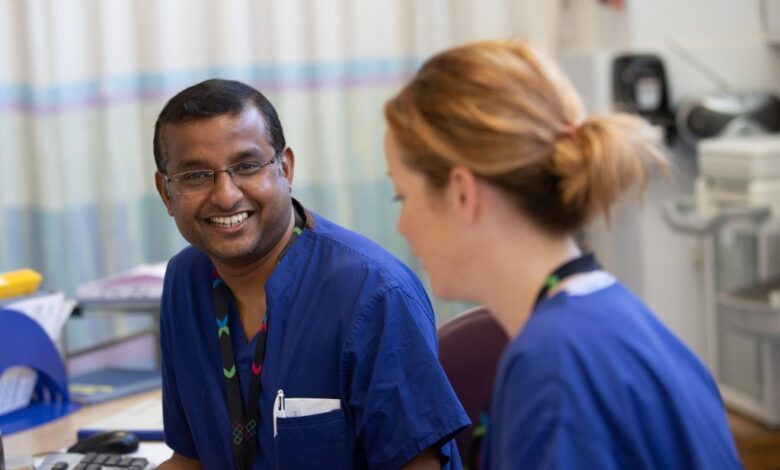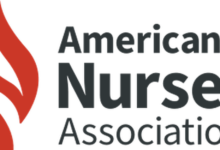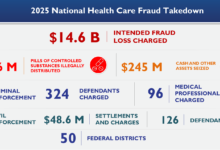RCN publishes new definition of nursing

The Royal College of Nursing (RCN) has published a new definition of nursing which it says recognises the “increased complexity” of the work carried out by registered nurses today.
The last time the RCN updated its definition of nursing was 20 years and the college said the nursing profession had “changed enormously” since then.
“This has been a hugely important piece of work by the RCN”
Rachel Hollis
The new definition describes registered nurses as being “safety-critical” decision makers and problem solvers.
It says that nurses use “evidence-based knowledge, professional and clinical judgement to assess, plan, implement and evaluate high-quality person-centred nursing care”.
Meanwhile, the RCN has also published eight newly revised principles of nursing to sit alongside the definition.
The principles set out the “behaviour, attitude and approach” that people should be able to expect from registered nurses, nursing support workers and nursing students, said the RCN.
They are: equality, diversity and inclusion; accountability; safety critical, safe care; personalised person-centred care; communication and informatics; knowledge and skills; professional standards; and leadership.
The RCN will be drawing the definition and principles into a ‘professional framework for nursing’, which is set to launch online by the end of 2023 and will also include a new career framework for nurses, as previously reported by Nursing Times.
Rachel Hollis, chair of the RCN Professional Nursing Committee, which has been leading on the work, said: “This has been a hugely important piece of work by the RCN and will help ensure that registered nurses are valued and respected, and the scope of their work is acknowledged.
“The definition will sit alongside our revised principles of nursing, which are of relevance to the whole nursing workforce.
“It will underpin the RCN professional framework, which is designed to provide clarity on levels of practice and will establish a career framework for nurses, developed by nurses.”
The new RCN definition of nursing in full:
Nursing is a safety-critical profession founded on four pillars: clinical practice, education, research, and leadership.
Registered nurses use evidence-based knowledge, professional and clinical judgement to assess, plan, implement and evaluate high-quality person-centred nursing care.
The work of registered nurses consists of many specialised and complex interventions. Their vigilance is critical to the safety of people, the prevention of avoidable harm and the management of risks regardless of the location or situation.
Compassionate leadership is central to the provision and co-ordination of nursing care and informed by its values, integrity and professional knowledge. Responsibility includes leading the integration of emotional, physical, organisational, and cognitive nursing work to meet the needs of people, organisations, systems, and populations.
Registered nurses are decision makers. They use clinical judgement and problem-solving skills to manage and co-ordinate the complexity of health and social care systems to ensure people and their families are enabled to improve, maintain, or recover health by adapting, coping, and returning to live lives of the best quality or to experience a dignified death. They have high levels of autonomy within nursing and multi-professional teams, and they delegate to others in line with the NMC code.






